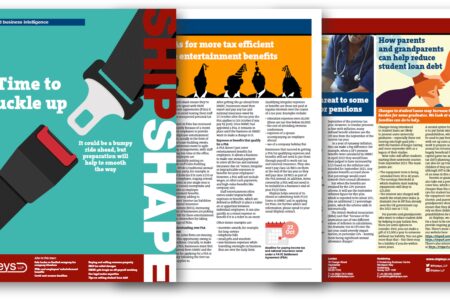Employers must ensure they’re fully up to speed with PAYE Settlement Agreements (PSAs) if they’re to avoid leaving their staff with an unexpected personal tax bill.
Interest in PSAs has increased significantly because of a recent trend for employers to provide more employee entertainment benefits, usually in the form of social or team-building events.
As businesses move to agile working arrangements, with staff spending less time at the office, some employers are understandably putting on multiple staff team-building events.
While a traditional annual Christmas party, for example, is exempt from tax if it costs £150 or less per employee, staging several staff events in one single year is likely to exceed exemptions and be taxable as employee entertainment benefits.
To sidestep adding to employees’ income tax liabilities and national insurance contributions (NICs), increasing numbers of businesses are picking up the bill for these entertainment benefits themselves by taking advantage of PSAs.
Misunderstanding over PSA deadlines
However, some firms are missing out on this opportunity owing to PSA deadlines. Crucially, to make use of a PSA, businesses must first get approval from HMRC and the deadline for applying for a PSA is the 5 July following the first tax year it applies to.
After getting the go-ahead from HMRC, businesses must then report and pay any tax and national insurance owed by 22 October after the tax year the PSA applies to (19 October if you pay by post). Once HMRC has approved a PSA, it remains in place until the business or HMRC want to make a change to it.
Expenses or benefits that qualify for a PSA
A PSA doesn’t just cover entertainment benefits for employees. It allows a business to make one annual payment to cover all the tax and national insurance due on “minor, irregular or impracticable expenses or benefits for your employees”.
However, a PSA will not include wages, or other cash payments, and high-value benefits like company cars.
Staff entertainment often comes under impracticable expenses or benefits, which are defined as difficult to place a value on or apportion between individual employees. It can also qualify as a minor expense or benefit if it is a ticket to an event.
Other minor examples are:
- incentive awards, for example, for long-service
- telephone bills
- small gifts and vouchers
- non-business expenses while travelling overnight on business that are over the daily limit.
Qualifying irregular expenses or benefits are those not paid at regular intervals over the course of a tax year. Examples include:
- relocation expenses over £8,000 (these are tax-free below £8,000)
- the cost of attending overseas conferences
- expenses of a spouse accompanying an employee abroad
- use of a company holiday flat.
Businesses that succeed in getting a PSA for qualifying expenses and benefits will not need to put them through payroll to work out tax and national insurance.
They also won’t pay class 1A NICs on them at the end of the tax year as they will pay class 1B NICs as part of the PSA instead. In addition, items covered by a PSA will not need to be included in a business’s end-of- year P11D form.
Shipleys helps several of its clients in submitting both P11D forms to HMRC and in applying for PSAs. For further advice and information, please speak to your usual Shipleys contact or one of our team of specialists on this page.
Specific advice should be obtained before taking action, or refraining from taking action, in relation to this summary. If you would like advice or further information, please speak to your usual Shipleys contact.
Copyright © Shipleys LLP 2022














